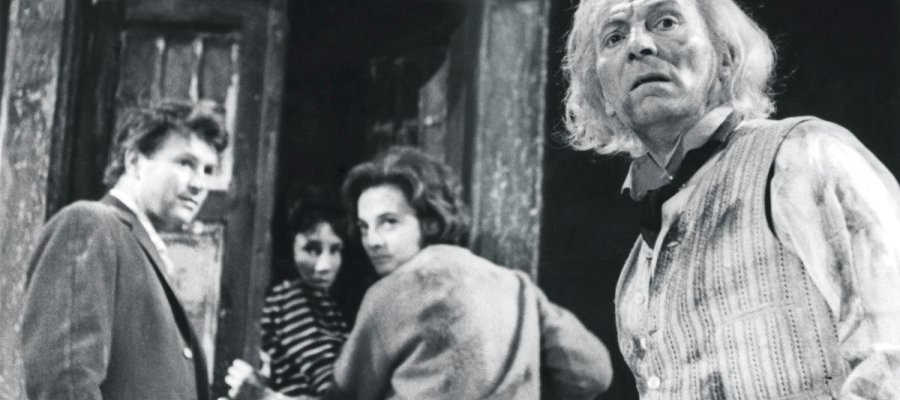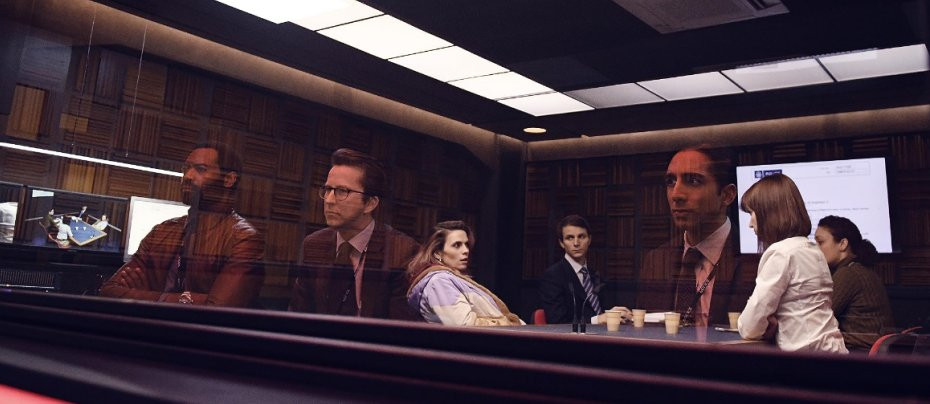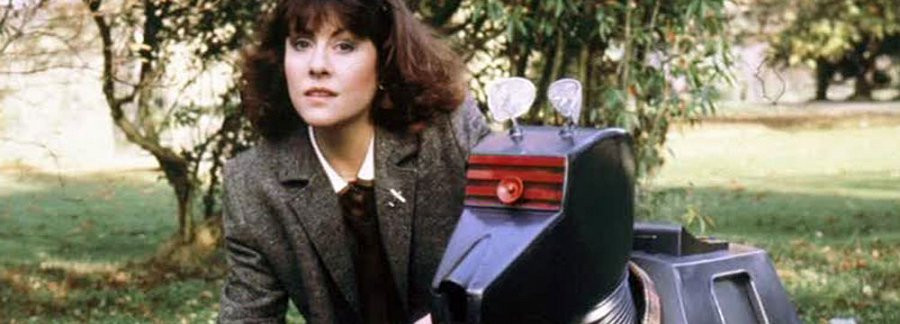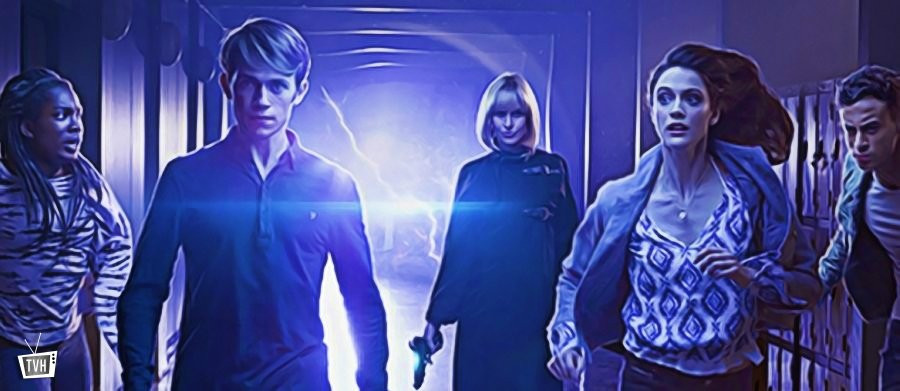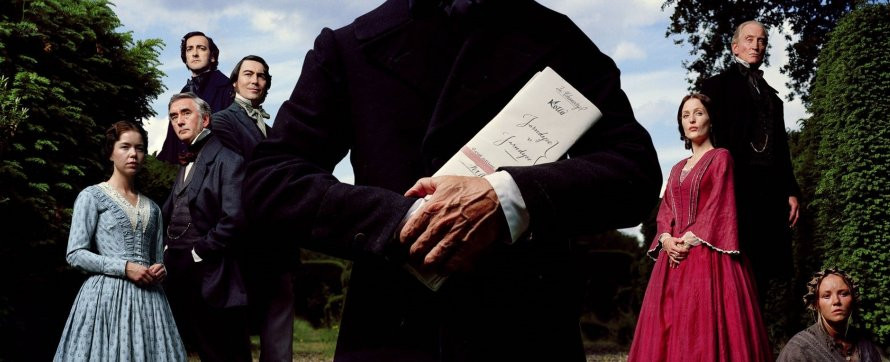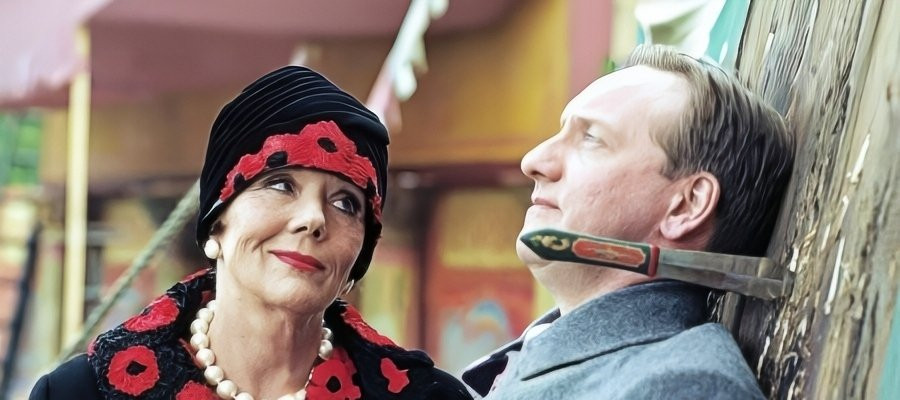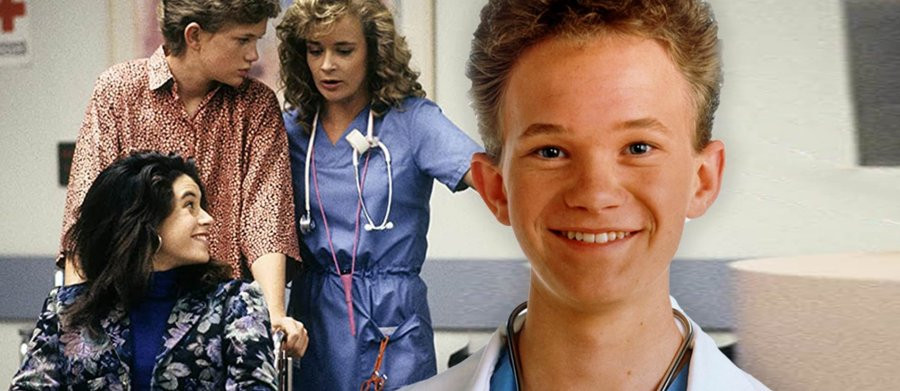The Giggle
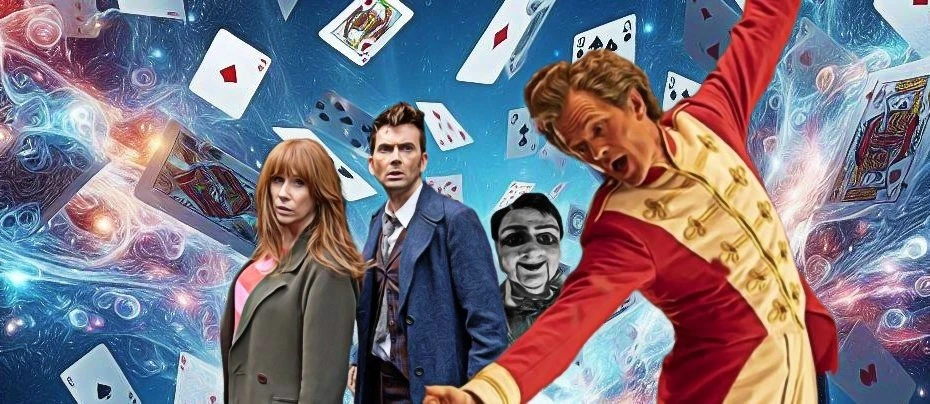
Review by Daniel Tessier (December 2023)
The third of 2023's Doctor Who specials was always set to be a huge event. The official end of the programme's sixtieth anniversary specials, the return of a villain unseen on screen since its earliest days, the end of David Tennant's second turn as the star of the show, and the introduction of Ncuti Gatwa as the latest incarnation of the Doctor. It's a loud, colourful, gleefully expensive production, it's carefully designed to say, “this is the big one.” It's also particularly difficult to review without spoiling the major events, so I'll approach it in two sections, saving the big revelations for the end.
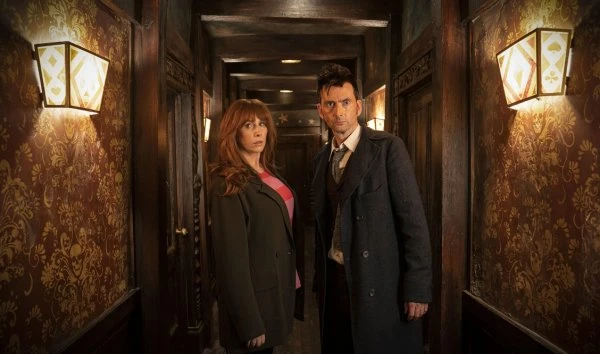
The Giggle is a weird, packed, proudly camp episode, full of striking imagery and some excellent performances. Showrunner Russell T. Davies stakes out his revised vision for the series, giving us the first glimpses of the style of the new Doctor Who. It's worth, once you've watched the episode itself, playing it again with the in-vision commentary available on iPlayer, in which Davies, Tennant and producer Phil Collinson discuss the making of the special with Davies in particular revealing his own creative process, early draft ideas, and concepts that never made it to screen. Davies is vocal about his decision to embrace the more fantastic side of Doctor Who, with the upcoming Christmas special and subsequent season steering away from the science fiction side of things for the most part. It's not that this is new for Doctor Who, which has been firmly on the fantasy side of sci-fi since it began (the two are really sides of the same genre, and not as different as people tend to think), but it's a statement of intent for the style and content of the adventures we'll see.
It makes perfect sense then, to bring back the Toymaker as the big returning villain for the special. Previously he appeared as the eponymous antagonist of the 1966 serial The Celestial Toymaker where he was played by Michael Gough (Batman Returns, The Avengers) and defeated by William Hartnell's original Doctor. The modern Toymaker is played by Neil Patrick Harris, a superstar coup for the show. Best known for How I Met Your Mother, A Series of Unfortunate Events or, for older viewers, as the lead character in Doogie Howser, MD, Harris previously worked with Davies in his seminal Channel 4 drama It's a Sin. Harris gives a magnetic performance that shifts from absurd and over-the-top to deeply sinister with ease.
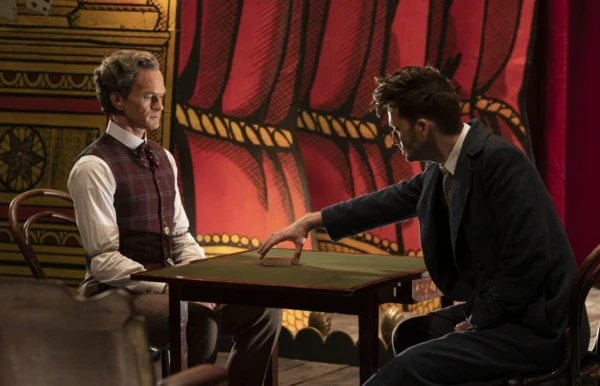
The Toymaker is one of the few purely fantasy-based beings in Doctor Who, a godlike entity who obeys no rules other than those of the game. He can bend time, space and matter to his will with the slightest thought, and only his adherence to game rules prevents him from being completely unstoppable. His inclusion harks back to the programme's early days, an obvious move for an anniversary story, albeit a more obscure one than most of the villains and monsters who were retooled for the modern era. Three of the four episodes of The Celestial Toymaker are missing from the archives and the remaining episode reveals a story that is frankly rather dull. (The upcoming animated remake may add some more life to it.)
There's also the distinct issue for a modern audience that the Toymaker's original appearance was racially problematic, with the Caucasian Gough dressed up in archaic Chinese Mandarin robes and putting on a stereotypical cod-Asian inscrutable character. Even the word “celestial” was questionable, meaning cosmic or heavenly in one sense, but also an old-fashioned and insulting word for the Chinese in another. (It's not the only such problem with the serial, which is the only one in Doctor Who's history to contain the N-word.)
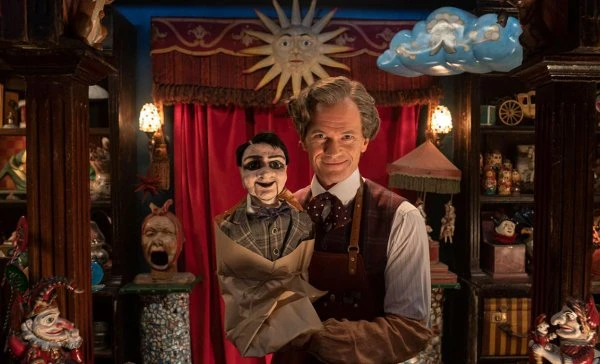
Still, the basic concept of the Toymaker is one with huge potential as a villain, and so it was always possible to bring him back, shorn of the celestial baggage. Davies, of course, is fully aware of the issue and is clever enough to, if not excuse it, then at least accept that it's there and deal with it. Harris's version puts on outrageous German and French accents as part of his manic performance (his rather proper English accent during the final confrontation being just as false, of course) and even makes a lazily racist comment to Charlie de Melo's (Coronation Street) character Charles Banerjee. There's no logical reason that a cosmic entity should appear as a white male human, with a tan verging on the Oompa-Loompa and given to offensive remarks and impersonations of other peoples. There's also no reason why not; it's simply another of the Toymaker's perverse games, presumably designed to antagonise his opponents. By the time it's done, the Doctor is even able to embrace the celestial epithet without the baggage.
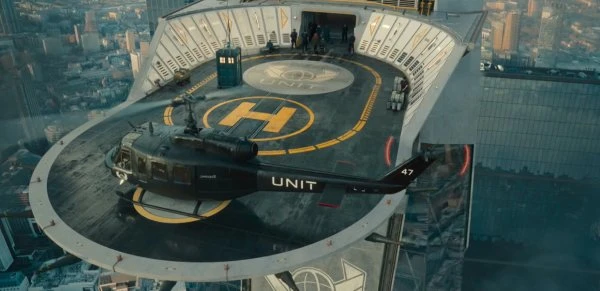
Together, Davies and Harris transform the Toymaker into a truly frightening and entertaining villain, a puppetmaster on a grand scale who delivers a mixture of absurdity and surreal nightmare imagery. Whether it's Donna trapped in a room fighting dummies or his ludicrously over-the-top entrance to UNIT's new Avenger's Tower-inspired HQ, the Toymaker's scenes and his realm stick in the mind long after viewing. None of this is entirely original: killer puppets and creepy toyshops have a long history in horror, and the Toymaker's dance number to the Spice Girls is derivative of the Davies's own Last of the Time Lords. That was the Master dancing to the Scissor Sisters, back in 2007; combined with the Doctor's offer to play across the stars with the Toymaker, it comes across as part of a greatest hits package. (The Master must be turning in his tooth.) It would probably have stood out less if the scene hadn't been referenced as recently as last year's The Power of the Doctor (which, for the Doctor, was seemingly only a matter of days ago).
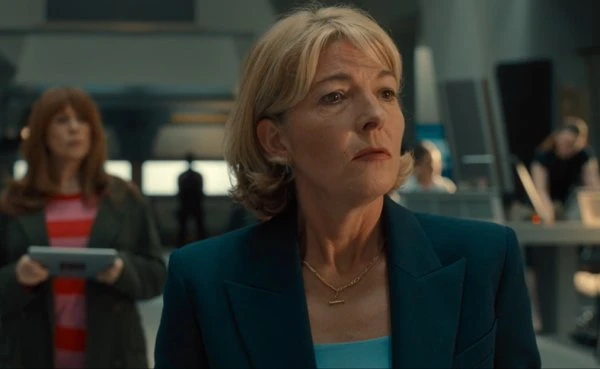
Yet, it's hard to find fault with that when it's so much fun and especially considering that it's the big anniversary celebration. Of course, there's going to be a bit of a greatest hits feel to things. Various characters refer directly to previous adventures, with the Toymaker getting under the Doctor's skin for his failings while simultaneously providing a handy catch-up for those who stopped watching when Tennant left the first time round, and the Doctor himself listing a seemingly arbitrary collection of elements from the full sixty years of this silliness. There are familiar faces too, of course, fewer than we might have expected given the occasion. Jemma Redgrave (Howard's End, Holby City) returns once more as UNIT head Kate Stewart, given far better material to work with than she's had since her introductory story (2012's The Power of Three). More surprising is the inclusion of Bonnie Langford (Just William, EastEnders) as Mel, former companion to the Sixth and Seventh Doctors (Colin Baker and Sylvester McCoy, respectively). Although her involvement in next year's series had already been announced, and she'd had a brief cameo in The Power of the Doctor, her appearance here was a lovely surprise. She didn't get much to do, but at least she didn't have to scream in key.
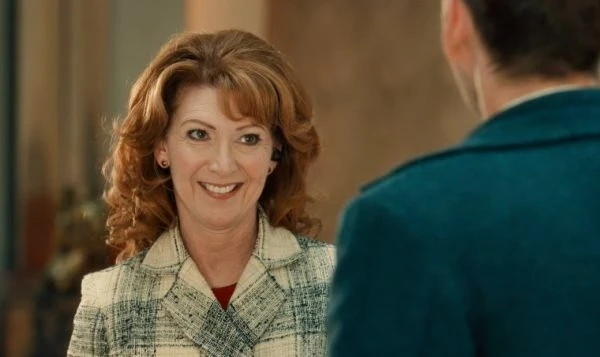
On reflection, it's funny how the sixtieth anniversary story tied into the dawn of television, while the BBC Centenary Special was the one that brought back a troop of old Doctors and companions. John Logie Baird's invention of the earliest television is the perfect subject for a Doctor Who story, with the genuinely sinister puppet Stooky Bill being just as unsettling in real life as he was here. John MacKay (Casualty, The Hollow Crown) gives a charming performance as the Baird, reprising his role from Davies's biographical drama Nolly. It was while researching that series that Davies first learned of Stooky Bill, which became the initial basis for this special.
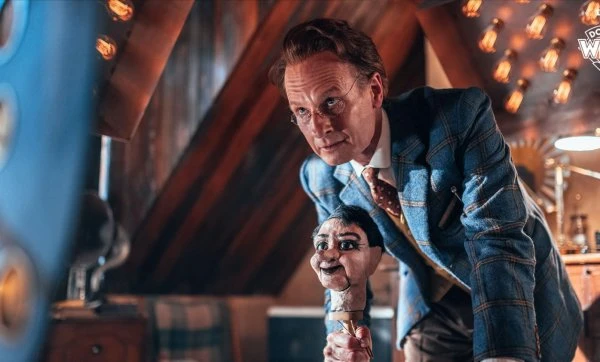
It has to be said, though, that the various elements of this episode don't quite cohere. The idea of a creepy puppet insinuating itself into television works, the godlike puppeteer works, the disturbing concept of humanity being turned into a living comments section works. However, once the Toymaker meets the Doctor, the other elements virtually disappear, given only the briefest of mentions. All of this could tie together beautifully, but not enough time is spent on the earlier ideas to make them fit with the rest of the story. It's perhaps a result of the script starting as Stooky Bill's story, before Davies decided the puppet needed a puppeteer as the main villain, something which immediately suggests using the Toymaker. The grand villain's inclusion eclipses the rest, but it still hangs on there as a relic of an earlier draft. Still, cramming a story with too many ideas is not the worst sin, nor is it one unique to Davies (if anything, he's the showrunner whose work suffers from this the least).
All this leads to the most anticipated part of the episode: the regeneration. This is where it gets really spoiler-y, so if you've managed to avoid details so far and still want to watch it, I'd advise against reading further.
***
Davies reinvents regeneration, the structure of the regeneration story, and potentially the future of the series itself with this special. The first surprise is that the regeneration happens with around twenty minutes of runtime left, something that would have made the change different enough from the ones that have gone before. This pales into comparison with the nature of the regeneration, though. After Tennant's performs the Fourteenth Doctor's quiet, refreshingly at peace last words, he splits into two, with Ncuti Gatwa's new, Fifteenth Doctor essentially peeling off him. This “bi-generation,” as it is dubbed, means that both Doctors now exist side-by-side, and are able to team up to defeat the Toymaker in his final game.
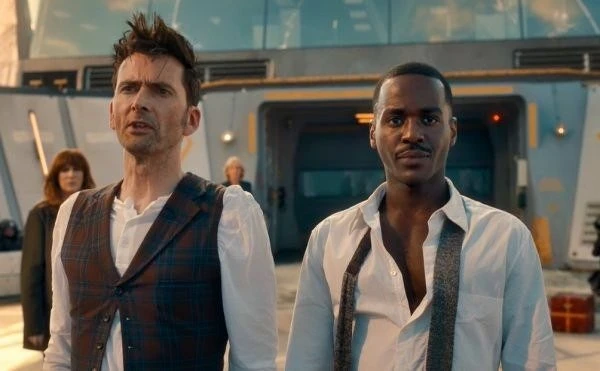
The surprise and verve of this makes up for how anticlimactic the villain's defeat actually is, coming down to a game of catch without anything clever or original to enliven it. Gatwa owns the role immediately, giving us a Doctor who is confident, sexy, charming, unapologetically queer and infectiously enthusiastic. He's someone who is happy to be alive and at peace with his existence. This is, in itself, another reinvention by Davies, who brought Doctor Who back by making the lead character a traumatised survivor carrying centuries of guilt. Eighteen years later, he finally subverts that and frees the Doctor of his baggage.
However, I'm not entirely convinced by the way he did it. Bringing Tennant back to the role brought viewers back by reminding them of the golden days, and in-universe, allowed the Doctor to begin healing by facing up to his past. It also had the inescapable effect of overshadowing Gatwa's introduction, making him tread water while the old star stepped back up for one last hurrah. Unfortunately, I think the bi-generation compounds this. It's not that Gatwa shares his first chunk of screentime with Tennant – it's better than what we would have expected, a few seconds at the end of the episode – but that Tennant's Doctor sticks around at the end, living his life with Donna and her family, with a TARDIS in the back garden so he can still run off for the odd adventure. While it keeps him around for the odd cameo in the series or in the inevitable UNIT spin-off, it also means that Gatwa doesn't get to truly be the incumbent Doctor in his own right. The first black actor to lead the series has to implicitly share the limelight with the old white guy who won't leave.
In fairness to all involved, the script and the performances fight against this. The new Doctor immediately takes emotional and intellectual control of the situation, verbally relegating Tennant's Doctor to the lieutenant by referring to him as both an old man and a kid. There's something lovely about the idea that the Doctor does his therapy in reverse, with the Fourteenth Doctor still apparently lying in the Fifteenth's past (presumably he'll loop back on himself one day – timey-wimey and so on). The Fifteenth Doctor can start the new era because he has the wisdom and freedom that the Fourteenth Doctor will gain. It doesn't get rid of the issue of Gatwa having to share the limelight at such a critical moment, nor the fact that it's once again derivative of Davies's own work. (Back in 2008's Journey's End, the Tenth Doctor was duplicated by an atypical regeneration, with the double settling down with Rose to live a linear life. This means there are three Tennant Doctors now, two of them living on 21st century Earth, albeit thankfully separated by a parallel universe.) The idea of the Doctor having never stopped running, ever since the show began, is thematically sound, but it overwrites Steven Moffat's tenure as showrunner, which repeatedly saw the Doctor take time out to heal.
All this leaves me in two minds about the episode. Overall, The Giggle is a fabulous, colourful, exciting adventure that, while being shamelessly derivative, continued to surprise throughout. On the other hand, it hinges on a climax that undercuts the very story it's trying to tell, and potentially undermines our new star.
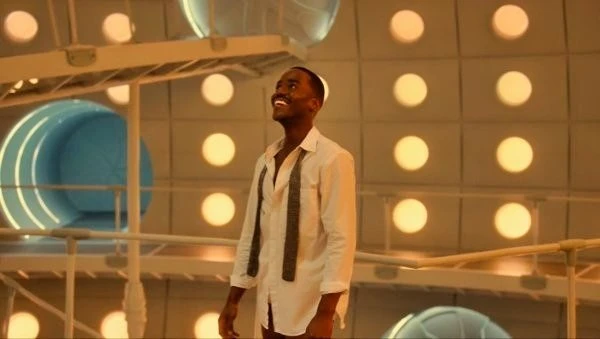
Fortunately, judging by his first twenty minutes as the Doctor, Gatwa is going to own the role going forward. The Fifteenth Doctor is unmistakably the Doctor, but in a way we've never seen before: confident without arrogance, emotionally intelligent and passionately alive. He manages to hold his own against fan favourite Tennant and the show's endless reluctance to say goodbye to him, and makes the Doctor his own. All without stopping to put trousers on.
Roll on Christmas Day.



